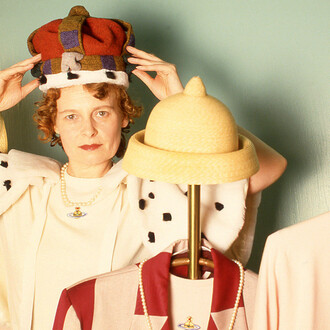The Quilters' Guild was formed in 1979, and at the same time, The Guild began collecting patchwork and quilting, primarily as a teaching and research tool. Today the Guild's collection totals over 700 items.
In addition to the well-known 1718 silk coverlet the collection contains some interesting examples of quilting from the 18th century, including two exquisite caps and a blue silk petticoat. A small white linen cot quilt is probably one of the earliest pieces in the collection. Possibly worked in a professional workshop it contains delightful quilting patterns of mermaids, castles, ships and exotic-looking animals. It may well date from around 1703 as it has key similarities with a linen quilt in the Victoria and Albert Museum which carries this date in the quilting.
The collection is also noted for its key examples of cotton patchwork made in fabrics from the late 18th to the early 19th century when the English market in hand block printed cottons, plate prints and roller printed fabrics was beginning to flourish. The frame coverlet known as 'Mrs Billings' is one of the finest in the collection. It was probably made around 1810 and has a central section surrounded by borders of different widths and pieced patterns. This arrangement is very typical of British patchwork and is known as a 'frame' layout. The workmanship of this coverlet is outstanding and over a hundred different fabrics have been used in its construction. Another key piece from this date is the 'Mary Prince' top. This pieced top echoes the frame layout in the choice of colours but it is pieced from just one geometric shape, the elongated hexagon. It has been pieced over paper templates using a traditional method sometimes known as 'English paper piecing'.
With the availability of cheaper printed cotton fabrics patchwork and quilted bedcovers gained a huge popularity amongst all classes in the 19th century and the collection reflects all aspects of the development of the craft during this period. This includes cotton frame quilts, wholecloth and strippy quilts, strip piecing, block patterns and applique. The fancy work quilts which were made in the second half of the 19th century are well represented with examples of diamond and hexagon patterns using silk and velvets, as well as crazy patchwork items. Wales and the North East of England developed a particularly strong quilting tradition during the 19th century and both geographic regions are well represented in the collection.











